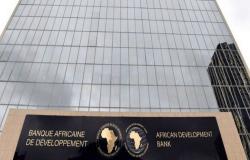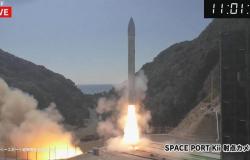One of the first consequences of the fall of the Bashar Al-Assad regime in Syria is the end of the Russian presence in the region. Which constitutes a great geostrategic loss for Vladimir Putin in his standoff with the West and with NATO forces.
After more than sixty years of Baathist rule in Syria, the last representative of the Al-Assad regime fled the ruins of the country, finding exile with the Russian regime allied with Vladimir Putin. Until then, it was predictable, given the twists and turns of recent weeks, with the rebels advancing inexorably towards Damascus and Bashar Al-Assad’s decision to listen to the rebels, with the promise of a new Constitution. Except that this decision had to be taken in 2012. It arrives late, in a country destroyed, decimated, devastated by more than twelve long years of civil war, which left several hundred thousand victims and at least 16 million refugees, not to mention the missing, the missing and the millions injured.
First, Bashar Al-Assad’s flight had been planned for several months. Obviously, Russian guarantees acted as a safeguard until this week while waiting for the end of the regime. Bashar’s fall also amounts to a snub for Vladimir Putin, who is losing a battle here against Washington and Western countries and NATO. The Syrian front being a duplicate of that of Ukraine, with Russian interests melting like snow in the sun, since, from now on, the maritime opening on the Mediterranean is in danger since it is the forces supported by the West which have control over the country. Moscow’s only Russian naval base in the Mediterranean was the Tartous site, which had taken on even greater strategic importance when Moscow decided to invade Ukraine in February 2022. Because this war led to the closure of the Turkish straits to ships. military personnel of the belligerent States, in accordance with the Montreux Convention (1936). So, one of the first consequences of the fall of the Bashar Al-Assad regime in Syria is the end of the Russian presence in the region. Which constitutes a great geostrategic loss for Vladimir Putin in his standoff with the West and with NATO forces. It must be emphasized here that Russia had firmly established itself in Syria for ten years. But she was forced to empty the place urgently. Unable to once again save the day for the Syrian dictator, as it did in 2015, the Russian army had to withdraw. Starting with the ships which were stationed in the port of Tartous, the only naval base that Moscow had in the Mediterranean, which returned to other maritime territories, leaving room for French and American ships. This now vacant position was very quickly filled by Israeli forces, who for the first time since the war with the Arab states crossed the Syrian borders, with the approval of Washington.
Since December 8, 2024, while the Iranian “axis of resistance” has collapsed, with its allies weakened or fallen, the Israeli army has extended its control of the Golan Heights to the demilitarized buffer zone created in May 1974 following to UN Security Council Resolution 350. We can clearly see that the end of the Al-Assad regime creates a new strategic and military order in the region, with Israel as a pivot between what remains of Palestine, Lebanon, and today, a Syria under Western control. This incursion into Syria gave rise to a series of targeted attacks by the Israeli army. Indeed, the IDF “destroyed the main military sites in Syria” by carrying out around 250 strikes, as the Syrian Observatory for Human Rights (OSDH) clarified on December 10, 2024. But Washington and Western capitals as well as Tel Aviv are not the only victors after the fall of the Al-Assad regime. Ankara has everything to gain today in a region under tension, with the Kurdish conflict, the unstable situation in Iraq and the enmities with its Iranian neighbor. Beyond its geopolitical victory, particularly against Russia, Turkey hopes to benefit from this post-Al-Assad Syrian configuration.
“As a new era dawns in Damascus, we will stand by our Syrian brothers, as we have before when they experienced difficult times,” as Foreign Minister Hakan said Fidan to a group of ambassadors from the Turkish capital, December 9, 2024.
Adding: “We will continue our efforts for the safe and voluntary return of Syrians and to ensure the reconstruction of the country.” Ankara first wants to ensure the repatriation to Syria of as many refugees as possible on its soil. The return to Syria of the more than three million Syrians sheltering in Turkey is a priority for the Turkish government. Moreover, thousands of Syrians have been expelled almost systematically to northern Syria since the re-election of Recep Tayyip Erdogan in the 2023 presidential election. Without forgetting all the financial windfall brought by the reconstruction of Syria. President Erdogan, very close to construction sector tycoons, is throwing all his weight into favoring Turkish companies. Moreover, the shares of Turkish construction companies, notably cement and steel manufacturers, jumped on the stock market following the fall of Bashar Al-Assad. This shows what is at stake in such a Turkish offensive to place its pawns in Syria. In this configuration, some gray areas remain, such as the border with Lebanon and Israeli interests in this very sensitive area, with the Golan Heights, as the sinews of the war between Damascus and Tel Aviv, but for the rest the The political map is now increasingly clear: Moscow is out of the game, Washington and NATO are placing their marbles and strengthening their domination in the Middle East. This will have a serious impact on the standoff in Ukraine where Vladimir Putin will want to force the West to submit.
Abdelhak Najib, Writer-journalist.






